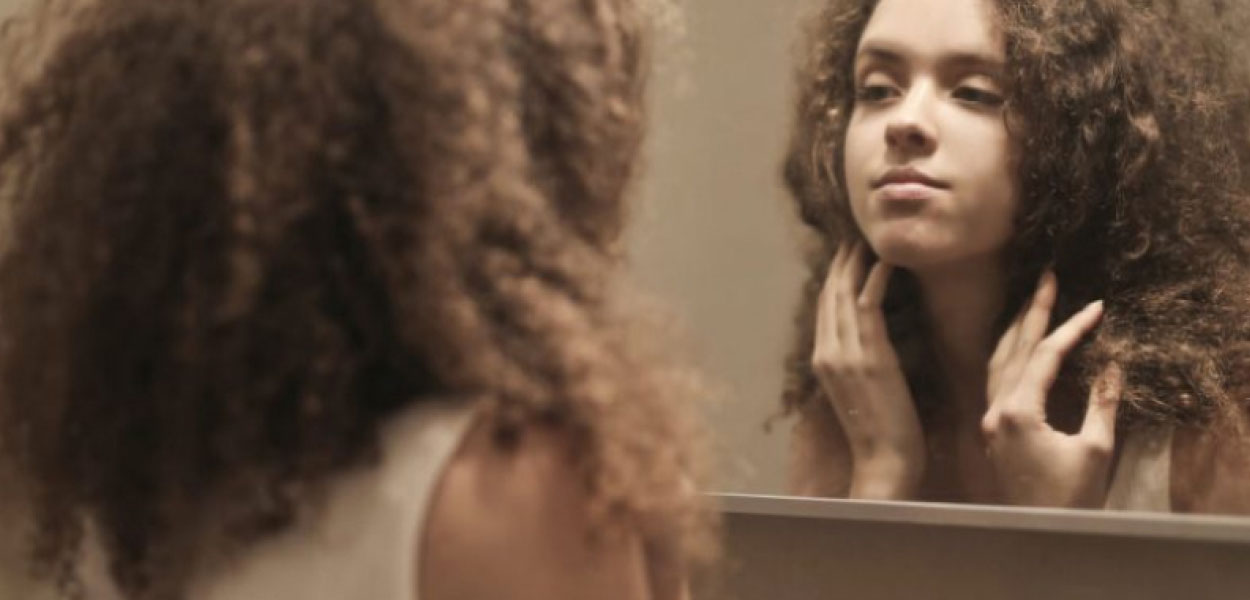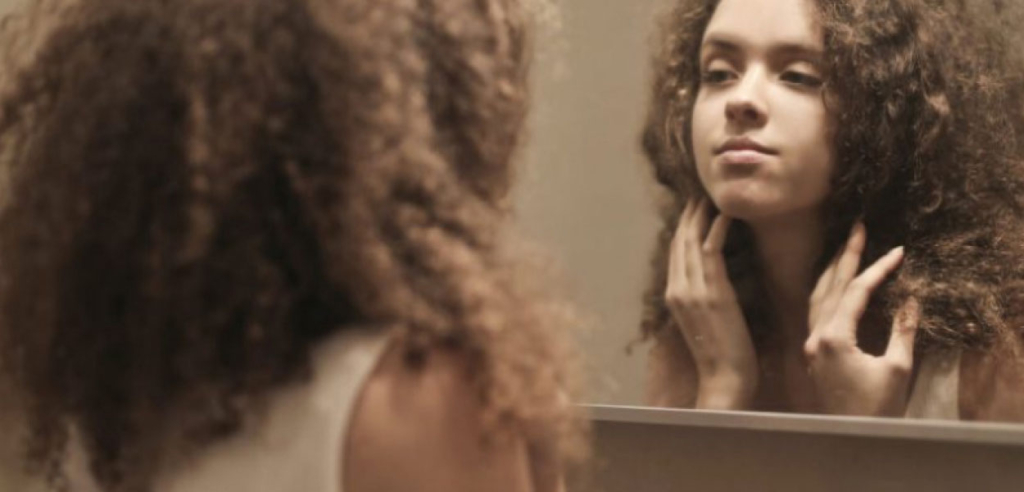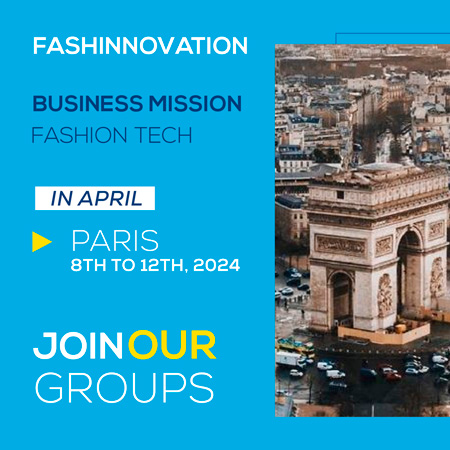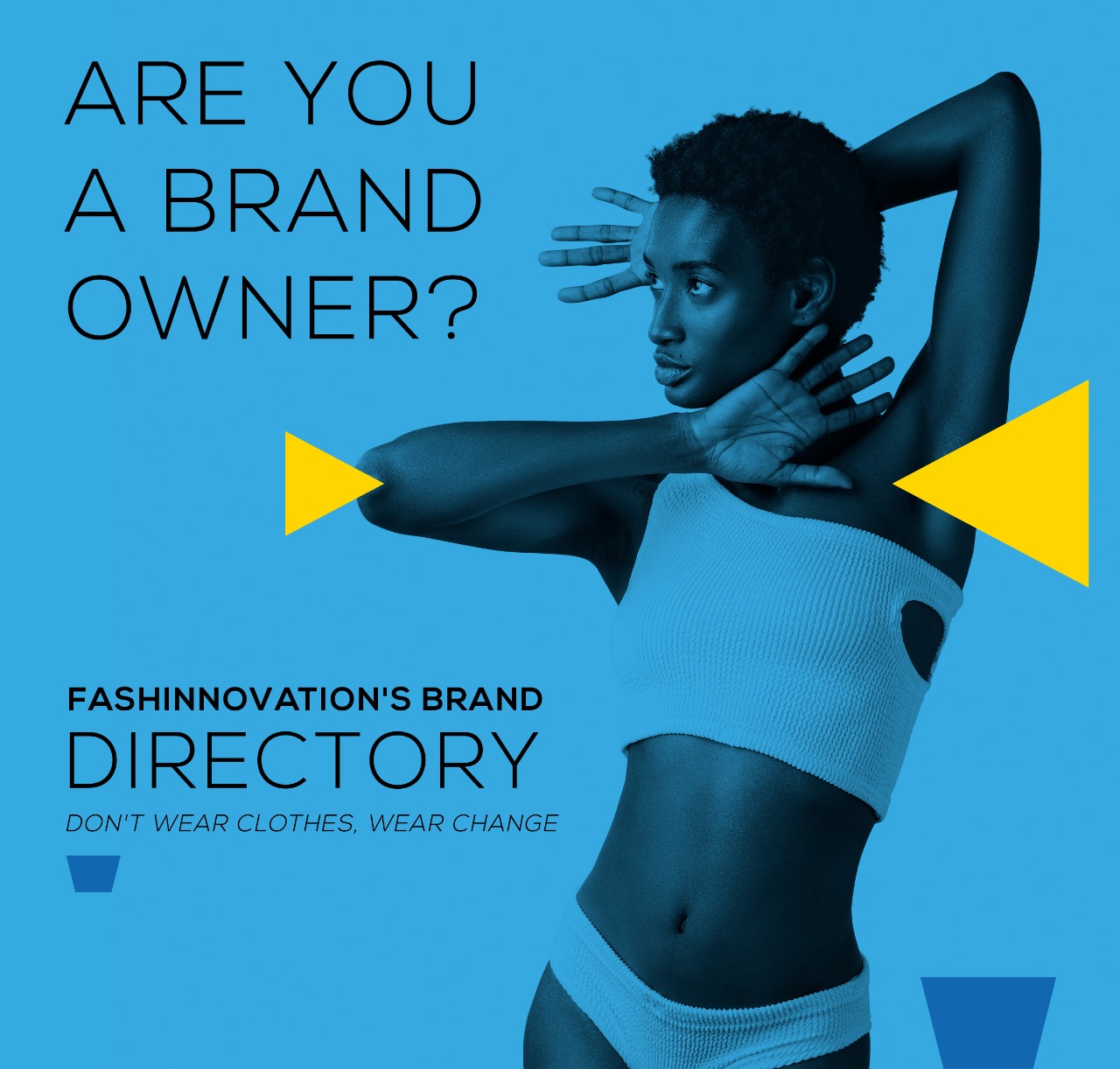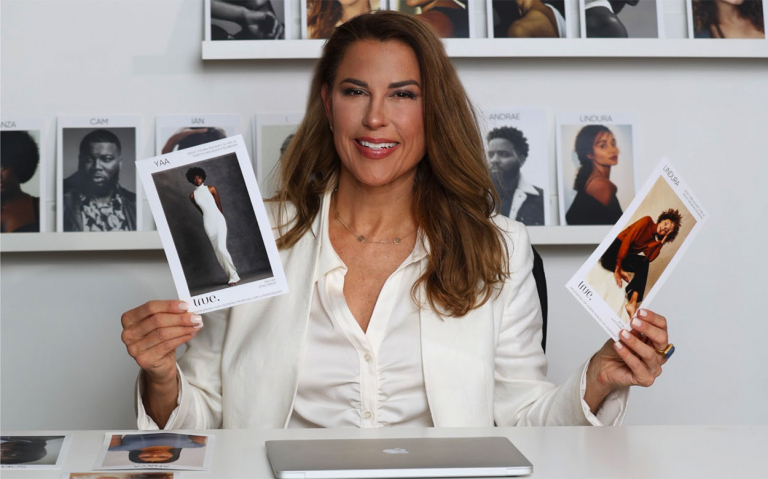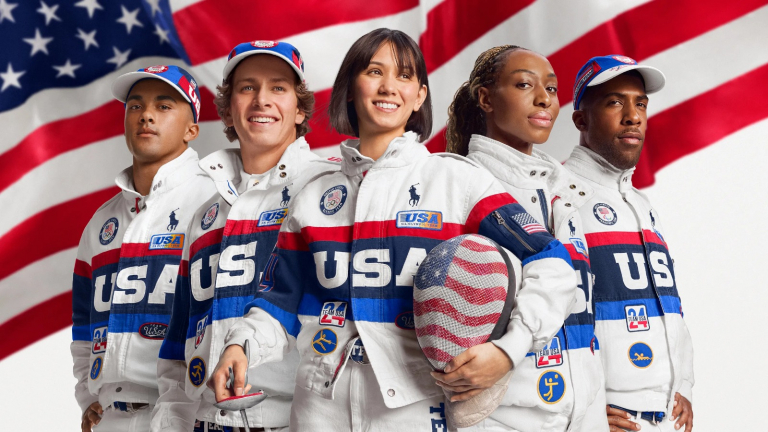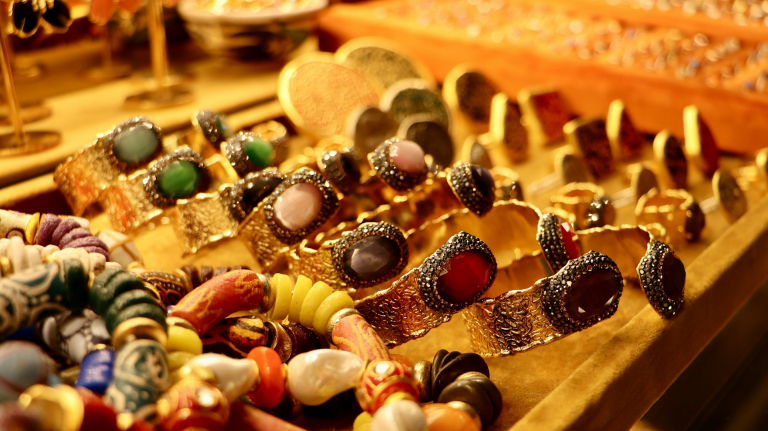Every Friday, Fashinnovation’s co-founder, Jordana Guimarães, hosts a talk on Clubhouse. Each week we’re presented with a different, but always inspiring, topic of discussion.
The last Fashinnovation Talk, on April 9th, was about Diversity and Inclusivity in the fashion industry. As several guests that passed through the room noticed, there are so many important topics around it that need to be discussed. Even so, it should be noted that it is impossible to talk about it without addressing the importance of representativeness.
What is Representativeness?
According to the Psychology Dictionary, representativeness means the correlation between the population and the sample of people taken from it. It’s usually related to how does this sample reflect the larger group.
Simplifying, representativeness says a lot about the small “1%” group that has influence and if the people who are a part of it really represent the pains and demands of our society. Nowadays, consumers are asking and demanding from brands representativeness in all aspects, such as ethnicities, skin color, sexual orientations, body types, etc.
This small group, that we are calling the “1%” lives up to the people who are listened to in our society. Such as politicians, people with financial resources and those who have access to good education and health systems. When it comes to the fashion industry, we are talking about those who are on catwalks, in brand campaigns, in fashion magazines, and other places in society in which the spotlights are directed.
Does this small group really represent everyone? When you see a fashion show or models in mainstream media, do you also see yourself in there? Do you feel represented? Well, this is the thing: most people, don’t!
What Representativeness Has to Do With Fashion?
In the last few years, people have started to talk about representativeness in fashion and demanding transparency and plurality from brands. Nowadays, the truth is we can’t talk about fashion without, also, talking about politics.
Even though, as stated by Silvia Amorisono in Fashinnovation’s Talks on Clubhouse last Friday, we still have a long way to go when it comes to representativeness in fashion. Amorisono is a stylist and she has Alopecia. She’s is proud of it and she works towards empowering women and breaking beauty standards.
These beauty standards imposed by society constantly set men and women against their own bodies. They highlight only the white, thin and occidental beauty. And, with it, it builds a huge aesthetic pressure in which people start questioning their own appearance.
Along with that pressure, we constantly see celebrities and, nowadays, also influencers, trivializing plastic surgery. And this makes the scenario even worse once it’s normal that they serve as inspiration for a lot of people. Because of that, their fans and society, in general, get exposed to their “perfect body” – read perfect also as a beauty standard – but not natural and that makes other people, mostly young ones and women, questioning their bodies even more.
In other words, if only this “1%” is considered by social beauty standards to be “beautiful”, worth of being photographed and showed in magazines and catwalks, what about the rest? Well, that’s why is essential that we keep this conversation topic in vogue.
Equality x Equity: Where Representativeness Got Lost
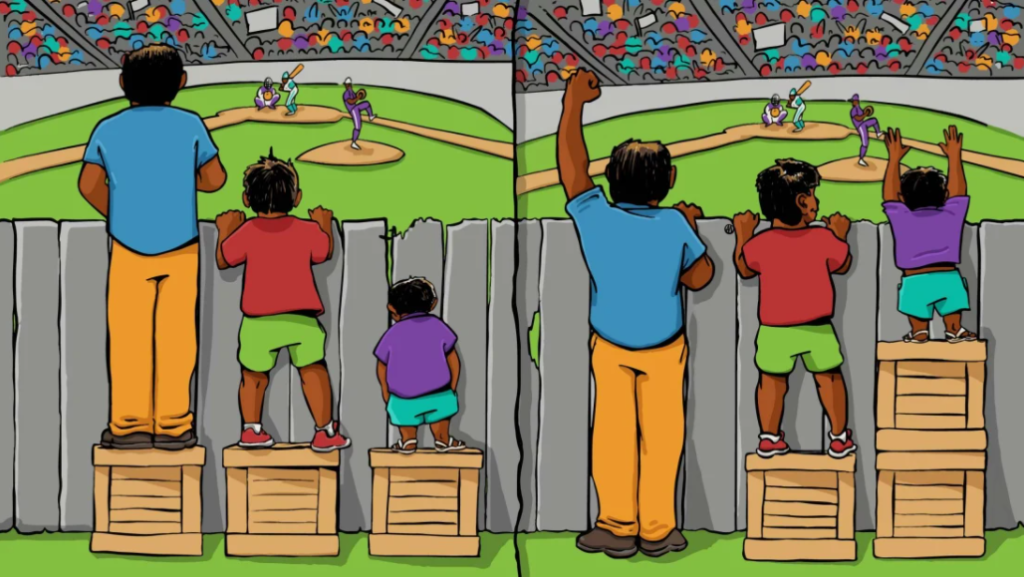
According to the Cambridge Dictionary, Equality means the right of different groups of people to have a similar social position and receive the same treatment.
On the other hand, we have equity. Equity is about treating everyone fairly. It accepts and respects everyone’s differences. By embracing it, we give each one fair tools in order to build social justice.
For instance, when we have three people, of different sizes, trying to see what’s behind a high fence. If we give them the same amount of boxes, with the same size, they are receiving the same conditions. But, this means we’re not considering their differences. Just like we see in the aside picture.
So, when we are talking about representativeness we must consider that we live in a plural society. That means each one of us has our own qualities, but also our own fears, demands and issues. We have to be proud of it because that’s what makes us unique. But, also, we need to demand that brands and the industries in general respect it.
The Fashion Industry and Its Beauty Standard
Nowadays, as we said, it’s quite common that women and men stand in front of a mirror and question their beauty. Once they don’t see people like them on magazine covers and social media, they start questioning why they don’t look similar to those who are not in the spotlight.
Even today, most models on magazines and catwalks are tall, less curvy than the average people and often of pale skin. That’s the beauty standard that the fashion industry, and other industries as well, still sustains in a retrograde, prejudiced, disrespectful and in non-responsible way – in which we had the pleasure of having Verneda Adele share lots of insight and knowledge!
The major issue arising in the fashion industry is the lack of body diversity which lags further behind a slight racial diversity in campaigns or some plus-size female models walking in runways. The good news is: it started to change, but we still need to keep this transformative wave strong and growing.
Social Washing x Real representativeness: keep your eyes open!
Social Washing it’s a relatively new term, but an old practice that we need to open our eyes to. It’s quite related to Green Washing and talks about the misrepresentation of companies appearing more socially responsible than they actually are. We can say that is marketing disguised as philanthropy.
What we mean is that some companies, focusing only on selling, they pretend to embrace every skin color and body size on their products and campaigns. But, behind the beautiful pictures and quite strong speeches, the truth is a lot different. That’s why we have to watch carefully the industry and, mostly the brands we buy from, and see what truly are their actions and values. They can try, but with information, we will not let them fool us.
How to change this situation
We know it’s hard, but we have to keep fighting for it. A drop of water can’t change the whole world but can help revive the closest flower beside it.
So, we’re going to give you 3 tips for you to put in practice. We invite you to join us in this journey for representativeness in the fashion industry.
1. Demand transparency from brands
Keep asking and questioning the brands you buy from. At the same time, if you’re an entrepreneur or a company owner, provide your consumers with information. Tell them everything behind the product. Share with them your true values.
2. Watch who you follow on Social Media
Social Media is amazing, but we have to know how to use it for good. So why not follow only people that align with your personal values and purposes. That makes you feel represented and where you can inspire.
3. Keep these types of discussions on – and on, and on, and on
There is nothing more empowering than information. We will continue to share experiences, learnings and seek to educate ourselves and our community on different subjects.
Why not talk with your friends and family about representativeness? Bring this value into your company’s corporative environment? And don’t hesitate to share with us your experiences and thoughts about it on our social channels! By creating this critical way of thinking and seeing our industry, we will, together, bring about positive changes. Join us!
